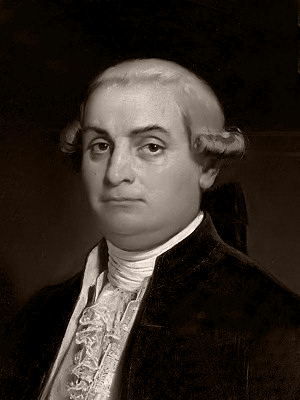 Cesare Beccaria was the firstborn of a noble Milan family that, though not rich, was wealthy. His father descended from a branch of an illustrious family from Pavia, who had obtained the marquis title in 1712. Between the ages of eight and sixteen he studied at the Farnesiano College in Parma (run by the Jesuits) and later graduated in Law in Pavia in 1758.
Cesare Beccaria was the firstborn of a noble Milan family that, though not rich, was wealthy. His father descended from a branch of an illustrious family from Pavia, who had obtained the marquis title in 1712. Between the ages of eight and sixteen he studied at the Farnesiano College in Parma (run by the Jesuits) and later graduated in Law in Pavia in 1758.
In the early sixties he entered the circle of the Accademia dei Pugni of the Verri brothers, starting a fruitful collaboration with the magazine «Il Caffè»; the magazine aimed at producing literature that was useful for society and therefore offered printing space discussions on major economic, scientific and social themes as well as specific topics, such as the grafting of smallpox.
His book Dei delitti e delle pene (1764) was a fundamental text of the Italian Enlightenment; anonymously published, to avoid censorship, it promoted a reform of the penal system to obtain a code of clear laws, free from the arbitrary interpretation of individual judges, to protect citizens who had the right to be considered innocent until proven guilty.
The most complex passages concerned torture and the death penalty. Beccaria affirmed the uselessness of capital punishment for society, which would have benefited instead from a punishment that was
public, prompt, necessary, the minimum possible in the given circumstances, proportionate to the crimes, dictated by the laws.
